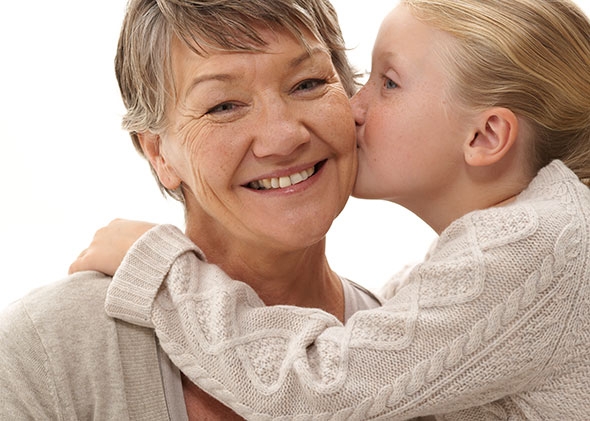
Choosing Parenthood at 35
How will this affect our family structures?

Courtesy of Thinkstock
Women having children in their late 30s and early 40s is nothing new. In fact, says University of Maryland Sociology Professor Phillip Cohen, birthrates at those ages were higher in the 1950s and 60s than they are today. The difference, he says, is that today women are having their first children at those later ages, whereas in 1960 women were having their third or fourth child at age 40. We spoke to Professor Cohen about the implications of this trend for family structures and individual life courses.
Why are more women choosing to have children later in life?
This is mainly because of the increased time people spend in education. In addition, more people are finding partners and marrying later in life, after their education is complete and their careers are more established.
How will later pregnancies for women impact family structures?
On the plus side, this means that parents, especially mothers, are more mature and well-established before they enter into parenthood. This is mostly good for children. On the downside, of course, parents are older and more likely to face their own health problems earlier in their children's lives. However, longer active life spans are helping to counteract this trend.
Are there certain populations that are not having children later and later? What are those populations, and why are their patterns not changing?
The main groups that are continuing to have children younger are people with low levels of education, and evangelical Christians or other religious conservatives who believe in early marriage and having many children starting earlier in life.
We've seen reports of women having children in their 60s (and one woman who gave birth at 70). Do you think this could become more common?
These will remain anomalous cases for the foreseeable future. The technology is there but it is difficult and does not have a high success rate. I think what we will see are more women having first children in their late 30s and early 40s. This is already becoming fairly common.
Why do you think that is?
It’s not just because people are living longer, but because people have more complicated early adulthoods, establishing their careers and spending more time in education before having children. We have seen during the recession, for example, that birthrates fell for women under age 35 but rose for women over age 35. These other women could not afford to postpone childbearing even though they were facing insecure economic conditions.
For women today, what are benefits of having children later in life?
The timing of childbearing has important ramifications for women's educational and career opportunities. The time out of the labor force or education, and the discrimination that persists against women with children, mean that those women who have children earlier in adulthood face disadvantages that may be cumulative for their entire lives. On the other hand, women who complete their education before having children, and perhaps find partners when they are in a better position in the marriage market, stand to have greater economic opportunities for themselves and their children. Of course, there are risks with this strategy as well, but increasingly we see this is what people are choosing to do, if they have the choice.
There are some health risks associated with childbirth later in life for the mother and the child. How strongly do those need to be considered when women choose to delay pregnancy?
There are some risks associated with biological age, especially for conditions affected by genetic decay, such as Down syndrome. In addition, there is evidence that a father's biological age also increases the risk for some conditions, especially schizophrenia and perhaps autism. Most of the risks associated with parental age, however, are actually the consequence of people’s specific health conditions. So for individuals making this decision, the state of their own health is more important than an arbitrary guideline based on their chronological age.
Can later childbirth lead to more equality between men and women?
Yes. All around the world, we see greater gender equality in societies where women have fewer children, and have them later in life. The pattern of cause and effect is complicated, but the relationship is extremely strong. In the long run, I believe this is the direction in which we are heading.
Interview by Jordan G. Teicher